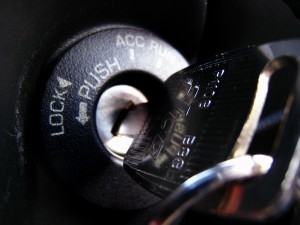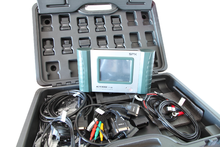5 Common Reasons Your Car Won’t Start
 You rely on your car for a lot of things, like shuttling the kids to soccer practice or for getting to work on time, so it’s easy to see why problems can arise if your car refuses to start.
You rely on your car for a lot of things, like shuttling the kids to soccer practice or for getting to work on time, so it’s easy to see why problems can arise if your car refuses to start.
There are literally hundreds of reasons why your car won’t start, but some are more common than others. Below, we discuss five common reasons why your car won’t start, and we offer some advice to ensure your car stays in top shape!
1. Dead Battery – A dead battery is the most common reason your car won’t start. Your battery can die for a variety of reasons; you left the dome light on over night, a wire is loose, water inside the component evaporated leading to poor conductivity, or it’s simply a really old battery! You can test to see if the battery is the problem by jump-starting your car. If the jump-start works, you’re most likely dealing with a dying battery. Consider replacing the battery, cleaning the connections, or have a technician do the service for you.
2. Bad Ignition Switch – If you know your battery is working properly, but your car doesn’t turn over on the first few tries, you might have a problem with the ignition switch. You can try to narrow down the cause of your issue by turning on your headlights. Because the battery controls your headlights and dashboard, if they turn on, but your engine won’t start, a bad ignition switch is the likely culprit.
3. Broken Starter – Similar to a bad ignition switch, a broken starter is another common reason your car won’t start. As the name implies, the starter provides the turning force necessary to get everything moving to start the engine. If you hear a clicking noise when you try to start your vehicle, a broken or weakened starter could be to blame.
4. Clogged Fuel Filter – If your fuel filter is clogged, the gasoline won’t be able to reach the engine. Fuel filters should be changed every 10,000 to 15,000 miles, so consider swapping filters next time you bring your car into the shop.
5. Gas Tank is Empty – Sometimes the most obvious answer is the right one. If you were running on fumes and forgot to refuel, your car might not have enough gas left in the tank to start. To quote funnyman Mitch Hedberg, go ahead and grab your toolbox, aka wallet, and ask someone to give you a lift to the nearest gas station.
Related source: About.com
-
Why Pay for Car Diagnostics?
 May 14, 2013
May 14, 2013Vehicle diagnostic checkups are often ignored by car owners, but are very important to the long life of your car. What are Vehicle Diagnostics? Back in the day, it was up to the individual mechanic to determine what was wrong with your vehicle. Now Electronic Control Units (ECUs), which are present in all modern cars, […]
-
When Should you Change your Oil?May 10, 2013
There is a lot of confusion about how often you need to change the oil in your vehicle. Every 3,000 miles is a common benchmark that many people stand by. The truth is that the answer varies greatly based on several factors. Why do you Need to Change your Oil at All? Your engine requires […]
-
4 Tips for Protecting Your Car’s Windshield
 Apr 15, 2015
Apr 15, 2015In a perfect world that 18-wheeler wouldn’t have sprayed up that rock and cracked your windshield, but sometimes windshield damage is unavoidable. Fluke cracks aside, there are some steps you can take help extend the life of your windshield and protect it against damaging chips and cracks. Below, we explain four tips for protecting your […]




